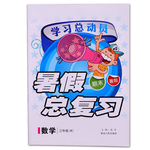题目内容
短文改错(共10小题;每小题1分,满分10分)
假定英语课上老师要求同桌之间交换修改作文,请你修改你同学写的作文。文中共有10处语言错误,每句中最多有两处。错误涉及一个单词的增加、删除或修改。
增加:在缺词处加一个漏字符号(^),并在其下面写出该加的词。
删除:把多余的词用斜线(\)划掉。
修改:在错的词下划一横线,并在该词下面写出修改后的词。
注意:1.每处错误及其修改均仅限一词;
2.只允许修改10处,多者(从第11处起)不计分。
Attention, please, everyone. I have anything to tell you. We will pay a visit to the History Museum this Sunday. Both of us should arrive in the school gate before 8:00. We will set off at 8:10 by the bus together. At about 8:40 we’ll visit the museum followed a guide. At about 11:00 the visit will be over, but we plan to return at about 11:10. The total cost was 20 yuan; everyone should hand in the money to me before Friday. Don’t forget wear your school uniforms on Sunday. And everyone need to write a composition after the visit. Hope you have a better time.
That’s all. Thank you.
1.anything --- something
2.Both --- All
3.in --- at
4.去掉the
5.followed --- following
6.but --- and
7.was --- is
8.forget后加to
9.need --- needs
10.better --- good
【解析】
试题分析:本文是一个通知,作者通知同学们本周日去历史博物馆,然后告诉同学们集合的时间、地点、乘坐的交通工具、几点结束和返回以及票价,还要求同学们穿校服和回来后写作文。
1.anything --- something 考查不定代词。anything 用于疑问句或否定句, something用于肯定句。I have anything to tell you.是肯定句,故把anything改为 something。
2.Both --- All 考查代词。both 两者都,只有两者时用;all 所有的,用于三者或三者以上。此处是指全班所有的学生,应该用all,故把Both 改为All。
3.in --- at 考查固定短语辨析。arrive in 到达某地,后跟大地点;arrive at 到达某地,后跟小地点。此处是指到达学校门口,是小地点,故把in 改为at。
4. 考查固定用法。固定结构:乘坐交通工具,by+交通工具,不加冠词。此处是指坐公交车去,要用by bus,故去掉the。
5. --- following 考查非谓语动词。At about 8:40 we’ll visit the museum followed a guide.前有谓语动词visit,所以此处应是非谓语动词,用分词形式做伴随状语,又因为它与主语we是主动关系,故用现在分词形式。故把followed 改为 following。
6.but --- and考查连词。At about 11:00 the visit will be over, but we plan to return at about 11:10.前句说参观大约11:00结束,后句说我们计划11:10返回,前后是意思上的承接关系,不是转折,故把but改为and。
7.was --- is 考查时态。The total cost was 20 yuan.总共花费是20元。这是一个通知,花费还没发生,不能用一般过去时,要用一般现在时,故把was改为is。
8.固定短语。固定短语: forget to do sth 忘记做某事,此处是指不要忘了星期天穿校服,故forget后加to。
9. --- needs 考查主谓一致。And everyone need to write a composition after the visit. 由文章内容可知本句是一般现在时,又主语是“everyone每个人”,所以谓语动词“need”应用三单形式,故把need改为needs。
10.better --- good考查固定短语。固定短语:have a good time 玩得高兴,过得愉快。此处是说希望你们玩得愉快,故把better改为good。
考点:考查短文改错

 学期复习一本通学习总动员期末加暑假延边人民出版社系列答案
学期复习一本通学习总动员期末加暑假延边人民出版社系列答案 芒果教辅暑假天地重庆出版社系列答案
芒果教辅暑假天地重庆出版社系列答案